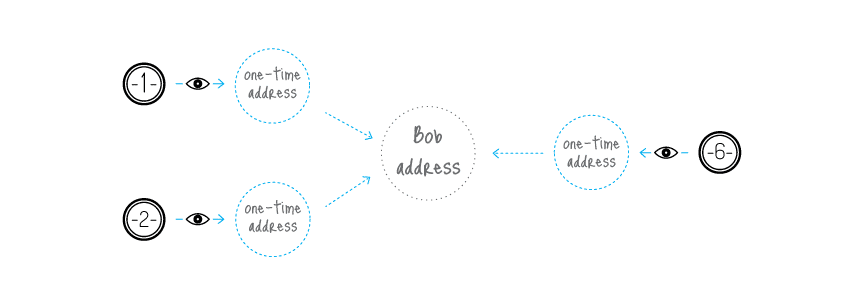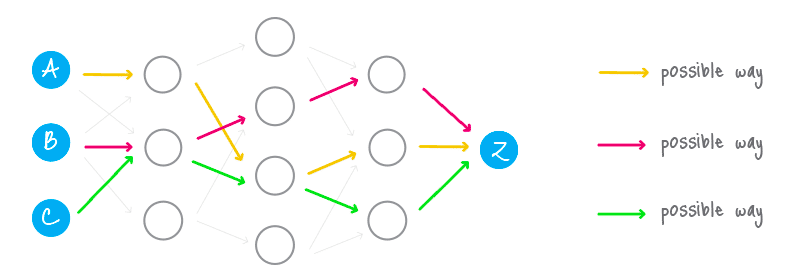Aeon is a mobile-friendly, lightweight privacy coin. Similar to the way that Litecoin is a lighter supplement to Bitcoin, you can look at Aeon as Monero’s little brother.
The Monero community is wholly focused on privacy and anonymity for the end-user. This focus has its perks but has caused the coin to fall behind from a usability standpoint. Aeon builds upon Monero’s CryptoNote hash while adding some lightweight functionality of its own.
In this Aeon beginner’s guide, we explain:
- Aeon vs. Monero
- Team & progress
- Trading
- Where to buy AEON
- Where to store AEON
- Conclusion
- Additional resources
Aeon vs. Monero
Aeon is aiming to be Monero-lite. Both cryptocurrencies utilize the CryptoNote protocol, a foundation of several privacy coins. Because they share the same underlying protocol, both coins also have many similar features – ring signatures, one-time keys, blockchain analysis resistance.
Using ring signatures, you’re unable to trace transactions. A ring signature is effectively a group of public keys tied to each transaction.
Typical transactions only have one public key from the sender, so it’s simple to trace. Ring signature transactions, on the other hand, take the sender’s public key and mix it in a group of other public keys on the network. Therefore, you can only determine that one of those addresses initiated the transaction but can’t verify which one did exactly.

Even with ring signatures, someone could still watch your public address to see all incoming transactions. One-time keys solve this issue. To produce a common, one-time key, the sender combines the receiver’s public address with a random bit of data. Then, the sender creates the public part of the key, while the receiver is the only person able to calculate the private part, giving him access to release the funds.

The last significant benefit that both of the cryptos share is their resistance to blockchain analysis. Transactions on a public ledger have become relatively simple to trace. Several studies have shown that even Bitcoin, with its pseudo-anonymity, isn’t as private as we all once thought. Trying to follow a CryptoNote transaction, though, is like tracing a family tree in which the branches get exponentially more numerous and tangle around each other. It’s nearly impossible to follow the correct path the whole way down.

The Differences
Although they share the same CryptoNote basis, there are some critical differences between Aeon and Monero. As stated above, beyond anonymity, the Aeon community is working towards lightweight usability.
Its Proof-of-Work algorithm, CryptoNight-Lite, enables faster blockchain verification than on Monero. The platform also has a 1MB scratchpad, meaning you can run it on mobile devices and traditional computers without losing much efficiency. Operating a full Monero wallet, on the other hand, may take up an excessive amount of space depending on your computer.
Aeon also prunes the blockchain to help with scalability whereas Monero does not. Additionally, the network has a four-minute block time in comparison to two minutes for Monero.
Finally, all Monero transactions are anonymous. Aeon transactions are only anonymous by default. You can still turn off the privacy functionality for lower fees. This difference exemplifies the community’s willingness to sacrifice some sense of privacy for a better user experience.
[thrive_leads id=’5219′]
Aeon Team & progress
An anonymous person launched Aeon on June 6th, 2014, as a fork of Monero. Now, a developer going by the pseudonym “smooth” leads the project, but anyone is allowed to contribute. There is no public roadmap. Although a relatively small project, its Github is active with weekly (if not daily) commits.
Aeon is competing with other privacy-focused coins. However, its closest competitors are the projects also focusing on ease-of-use.
Dash is foremost focused on being “digital cash” but also includes a PrivateSend feature that uses coin mixing in transactions to preserve privacy. Another competitor, PIVX, is a fork of Dash that’s also building an easy-to-use anonymous currency.
Zcash and Bytecoin are also in the privacy space. Zcash uses zk-SNARKs, a type of zero-knowledge cryptography, to provide users with privacy. Bytecoin, on the other hand, uses CryptoNote, and is the coin that Monero originally forked from.
Trading
The Aeon price was relatively flat for the first year of its existence. The coin experienced its first significant price jump at the end of August 2016 where it reached a local high of about $0.195 (~0.000338 BTC). The next spike occurred in September 2017 and was followed later by a sharp price increase at the end of the same month to reach an all-time bitcoin high of ~0.000667 BTC. Aeon followed the rest of the market during the end of 2017 bull-run in which it topped out at $8.99 (0.000587 BTC).
Because the project has a small market cap, it’s difficult to determine what caused some of these price movements. With no discernable news about the project, it’s possible that coordinated pump n’ dump efforts could have created some of the volatility. As with most cryptocurrencies, Aeon needs to see increased usage to get some positive movement on the price.
Where to buy AEON
You can either mine AEON or purchase it on an exchange.
If you’re interested in mining, we recommend that you join one of the mining pools listed on the project’s Bitcointalk forum.
Your exchange options for buying AEON are limited. Using Bitcoin to buy on Bittrex is your best bet as that exchange has the highest trading volume. You can also try TradeOgre or HitBTC, but the volume on those exchanges is minimal.
Check out our guide on how to buy Bitcoin if you’re confused on where to start.
Where to store AEON
You should store your AEON using the Sophia client that the development team provides. It’s available on Windows, Mac, and Linux operating systems.
Community members have also created several wallets, but you should be cautious when using these as the official development team does not endorse them. If you can, always review the wallet’s code (or have someone review it for you) to ensure that it works correctly.
Conclusion
Aeon is the lighter, faster version of Monero. Although both projects share the same underlying privacy protocol, CryptoNote, Aeon is striving to be more accessible. The project is doing so by implementing a lightweight mining algorithm, smaller blockchain, and optional anonymity.
As Monero grows, Aeon could very well grow with it. While you would use Monero for transactions in which you want to assure privacy, you may find Aeon to be a suitable substitute for day-to-day exchanges in which guaranteed anonymity isn’t as important.
Additional resources
Never Miss Another Opportunity! Get hand selected news & info from our Crypto Experts so you can make educated, informed decisions that directly affect your crypto profits. Subscribe to CoinCentral free newsletter now.










